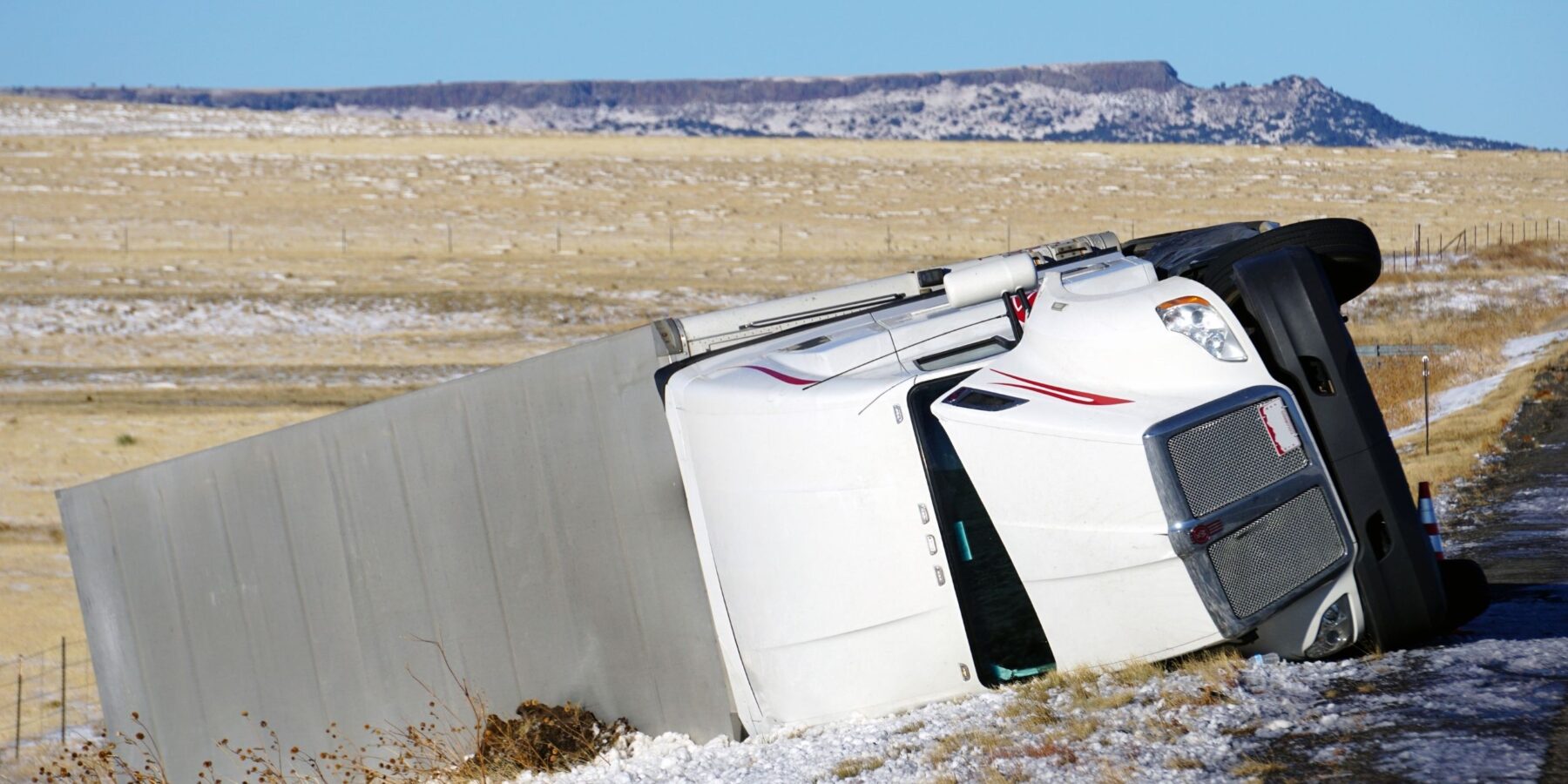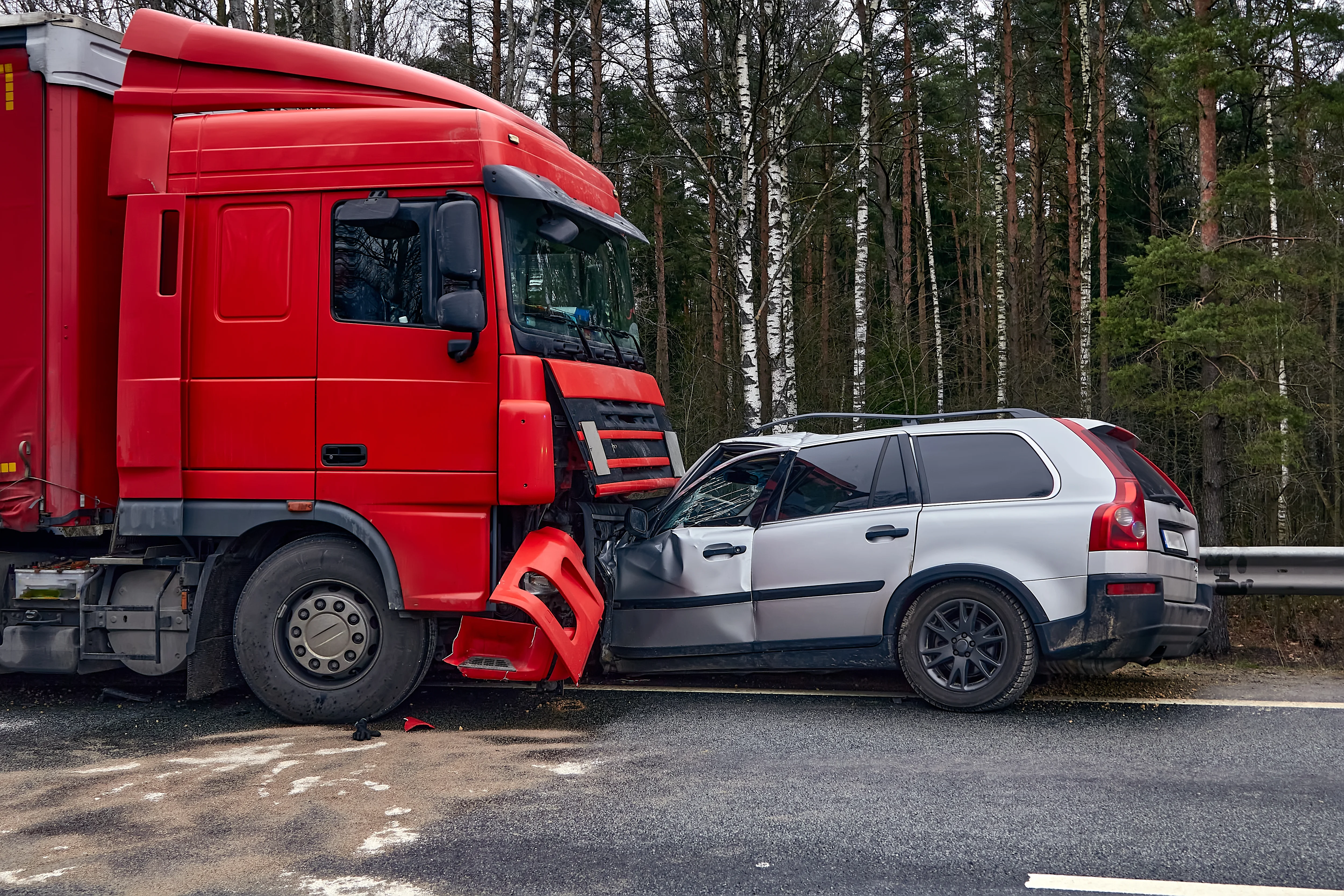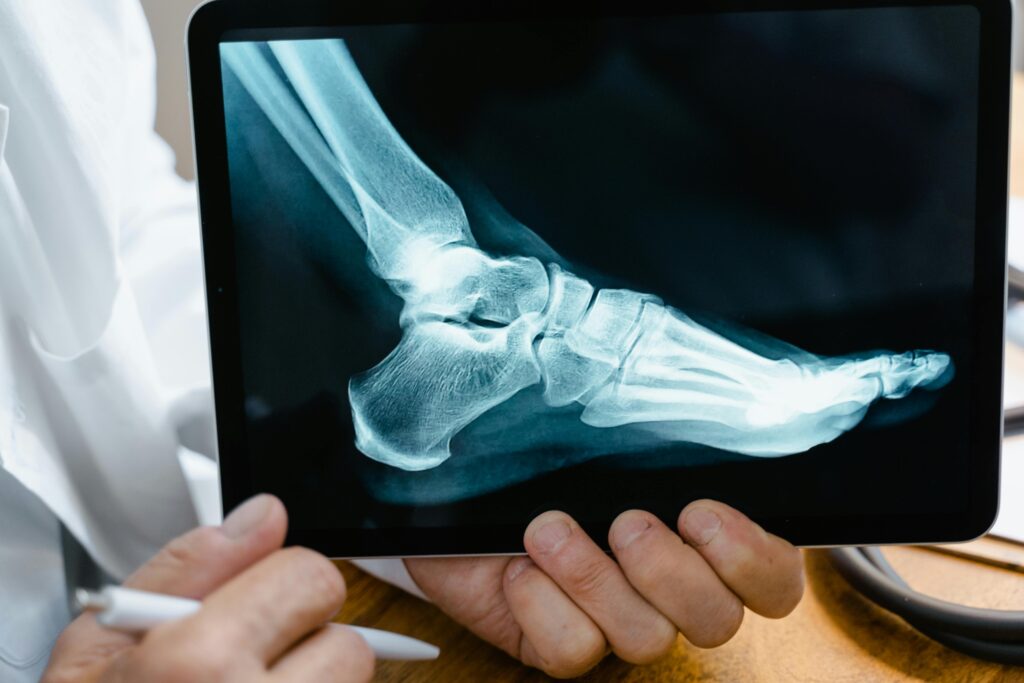What to Know About Truck Accidents in Colorado Springs
Truck accidents in Colorado Springs often result in devastating consequences. The city’s combination of high-altitude terrain, fast-moving highways like I-25 and Highway 24, and constant freight movement through residential and commercial zones makes it a hotspot for serious crashes involving large commercial vehicles. When a semi-truck or tractor-trailer is involved in a collision, the resulting injuries and property damage are often severe, if not fatal.
At the Law Office of Jordan S. Levine, we understand the unique challenges that truck accident victims face. From fighting large trucking corporations to deciphering federal regulations, we provide aggressive legal support to individuals and families navigating the aftermath of a serious collision. Our Colorado Springs truck accident attorney helps injured clients pursue full compensation for medical bills, lost income, and long-term disability.
If you or a loved one has been hurt in a Colorado Springs truck accident, call (303) 835-4910 or contact us online for a free consultation. We’re here to fight for your recovery and your future.
Why Truck Accidents Are So Dangerous in Colorado Springs
Truck accidents in Colorado Springs are especially dangerous due to the region’s mountainous geography, fluctuating weather, and dense commercial corridors. These factors, combined with long-haul trucking routes and infrastructure challenges, contribute to a high rate of serious injury collisions. Understanding the unique risks that heavy commercial vehicles pose on local roads is key to preventing accidents and pursuing compensation when they occur.
Steep Grades and Mountain Passes Increase Accident Risk
Colorado Springs sits at the base of the Rocky Mountains, and many key roads wind through steep terrain. Mountain routes such as Highway 24, North Nevada Avenue, and Ute Pass place extreme stress on truck braking systems and require careful speed management.
Brake Failure on Downgrades
When truck drivers descend steep grades too quickly, they risk overheating their brakes or causing full system failure. These scenarios often result in runaway vehicles that barrel into intersections or overturn on sharp curves. The Federal Motor Carrier Safety Administration (FMCSA) enforces strict brake system inspection requirements and mountain driving protocols to reduce such incidents, but many crashes occur when carriers or drivers cut corners. FMCSA brake safety resources provide insight into how equipment failure can lead to disaster.
Inexperienced Drivers in Mountain Terrain
Truckers unfamiliar with the elevations and sharp inclines around Colorado Springs often misjudge the difficulty of mountain driving. Limited training or a lack of route planning may send them onto roads unsuitable for commercial vehicles. This is especially dangerous in winter, when chain restrictions apply. For up-to-date road conditions and safety alerts, the COtrip traveler information system offers maps, weather conditions, and chain laws in real time.
High-Speed Truck Routes Exacerbate Crash Severity
Highways like I-25 and Powers Boulevard serve as freight corridors for trucks moving between major Colorado cities and out-of-state destinations. These roads combine high speeds with unpredictable merging and frequent congestion, a dangerous mix for vehicles weighing up to 80,000 pounds.
Longer Stopping Distances at Highway Speeds
At 65 mph, a fully loaded semi-truck may need the length of nearly two football fields to stop. When traffic slows suddenly, a delayed reaction can cause fatal rear-end or underride crashes. The National Highway Traffic Safety Administration (NHTSA) outlines the vast disparity in stopping distances between trucks and passenger vehicles, illustrating why high-speed collisions with trucks are often so deadly.
Multi-Vehicle Collisions in Congested Lanes
Fast-moving freight corridors become more volatile during rush hour or lane closures. Intersections like Woodmen Road and Academy Boulevard are known for sudden merges, lane shifts, and bottlenecks. When trucks cannot stop in time, the resulting crashes often involve several vehicles and serious injuries. Drivers who misjudge safe following distances or change lanes abruptly in these zones frequently trigger multi-car pileups.
Construction Zones and Detours Create Hazards for Trucks
Infrastructure upgrades and road expansion projects are ongoing in Colorado Springs. While improvements are necessary, active construction zones significantly increase the risk of collisions involving commercial vehicles.
Trucks in Narrow Work Zones
When traffic barriers reduce available lane width, large trucks struggle to maintain alignment, especially on turns or ramps. Sideswipes and collisions with construction equipment are common, particularly at night when visibility is poor. According to the Federal Highway Administration, proper work zone layout and warning systems are critical to prevent crashes, but not all contractors meet these standards consistently.
Sign Confusion and Sudden Detours
Out-of-town truck drivers often rely on GPS to navigate unfamiliar roads, but construction detours may not be accurately reflected in real time. Sudden lane closures and poorly marked detours cause hesitation and last-minute decision-making, which is particularly dangerous in 18-wheelers. Poor signage in construction zones contributes directly to driver confusion and erratic behavior behind the wheel.
Harsh Weather and Poor Visibility Elevate the Danger
Colorado Springs is notorious for unpredictable weather patterns. From whiteout snowstorms to high wind advisories, road conditions can change drastically in a matter of minutes, and trucks are particularly vulnerable to these shifts.
High Wind Rollovers
Semi-trucks, especially when lightly loaded, are at risk of tipping over in strong crosswinds. Elevated highways and open stretches like Garden of the Gods Road are particularly susceptible. The National Weather Service offers real-time wind alerts and rollover warnings, but not all drivers adjust their speed accordingly. Even seasoned truckers can lose control when wind gusts reach 40 mph or higher.
Ice and Black Ice on Road Surfaces
During winter months, black ice is a hidden hazard that makes it nearly impossible for large trucks to stop safely. Rear-end collisions, jackknife incidents, and spinouts are common on highways like I-25 and Constitution Avenue when ice forms overnight. The Colorado Department of Transportation outlines winter driving safety requirements for commercial vehicles, including mandatory chain usage in mountain zones.
Fatigue From Long-Haul Driving Endangers Everyone
Truck drivers traveling through Colorado Springs are often on long-haul schedules that stretch them to the limits of their endurance. These routes create mental and physical fatigue that directly impacts driver alertness and decision-making.
Drowsy Driving and Impaired Focus
The Centers for Disease Control and Prevention (CDC) reports that drowsy driving can be as dangerous as alcohol impairment. Many truck crashes in the early morning or late-night hours stem from drivers falling asleep at the wheel or zoning out in traffic. The CDC’s drowsy driving data reinforces how common and deadly this issue is, especially on stretches of road with limited lighting or sparse emergency access.
Hours of Service (HOS) Violations
Federal regulations limit how long a commercial driver can be behind the wheel before mandatory rest periods. However, some companies cut corners to meet tight delivery windows. When truckers exceed legal driving limits or falsify logs, they put every motorist on the road at risk. Employers who encourage or ignore these violations can be held legally responsible when accidents occur. The FMCSA’s Hours of Service rules detail exactly what is required and what happens when companies fail to comply.
Leading Causes of Truck Accidents in Colorado Springs
Truck accidents in Colorado Springs happen for a variety of reasons, but most are preventable. These crashes often result from driver negligence, poor vehicle maintenance, or unsafe trucking company practices. Understanding the root causes helps establish liability and strengthens the injured victim’s legal case. At the Law Office of Jordan S. Levine, we investigate every detail to hold all responsible parties accountable, whether it’s a reckless driver, a negligent employer, or a third-party contractor.
Distracted Driving Behind the Wheel of a Commercial Vehicle
Despite strict safety laws, distracted driving remains one of the top causes of truck crashes in Colorado Springs. Texting, reaching for objects, eating, or even using GPS can cause a trucker to look away from the road for a few seconds, enough time to cause devastating damage.
Mobile Devices and Navigation Distractions
Truck drivers often rely on apps like Waze or Google Maps to navigate city streets. However, frequent glances at screens divert attention from other vehicles, pedestrians, or traffic signals. Even when mounted on a dashboard, constant interaction with a device increases the risk of delayed reactions. The Federal Motor Carrier Safety Administration (FMCSA) prohibits commercial drivers from texting or using handheld phones while operating a commercial motor vehicle.
Speeding and Reckless Maneuvers on City and Mountain Roads
Speeding is especially dangerous when a truck is fully loaded or traveling downhill. Roads like I-25, Highway 24, and Research Parkway see frequent violations of speed limits by commercial drivers, especially during light traffic or downhill stretches.
High Speeds Reduce Stopping Power
The faster a truck travels, the harder it becomes to stop. A tractor-trailer moving at highway speeds takes significantly longer to come to a complete stop compared to a standard passenger car. This increases the risk of rear-end collisions, especially near congested zones or traffic lights. According to the National Highway Traffic Safety Administration (NHTSA), speeding is a factor in nearly one-third of all traffic fatalities in the United States.
Driving Under the Influence of Alcohol or Drugs
Impaired driving among truckers, although less common than among private motorists, still contributes to severe crashes. Alcohol, marijuana, prescription medications, and over-the-counter stimulants all impair judgment and delay reaction times.
Drug-Impaired Truckers and Legal Marijuana
Even though cannabis is legal in Colorado, driving under the influence of marijuana remains illegal. Truck drivers operating under the influence of THC or other substances often show signs of delayed motor response, impaired judgment, and poor spatial awareness. The Colorado Department of Transportation (CDOT) enforces laws against drug-impaired driving, especially in school zones and residential areas.
Fatigue and Hours of Service Violations
Drowsy driving is one of the most dangerous causes of truck crashes in Colorado Springs. Long-haul truckers frequently violate federal Hours of Service (HOS) limits to meet deadlines or due to pressure from employers.
Drowsy Drivers Have Delayed Reactions
Sleep-deprived drivers may nod off, drift between lanes, or fail to respond to sudden hazards. Studies by the Centers for Disease Control and Prevention (CDC) show that fatigue impairs reaction time as severely as alcohol intoxication. Many serious truck crashes on I-25 and Powers Boulevard occur during the early morning hours when fatigue is most likely to strike.
Improper Cargo Loading or Overweight Trucks
Improperly loaded trailers or overweight freight increase the risk of rollover crashes, jackknifes, and cargo spills. Trucking companies and freight handlers are required to follow federal weight and balance regulations, but violations are common.
Shifting Loads Cause Loss of Control
Unsecured or uneven cargo can shift during turns or lane changes, destabilizing the vehicle. This is especially dangerous on mountain roads or curved interchanges, where a sudden weight shift can cause the trailer to tip or detach. The FMCSA’s Cargo Securement Rules lay out mandatory procedures for safe freight transport.
Inadequate Vehicle Maintenance and Equipment Failure
Trucking companies are legally responsible for ensuring that every commercial vehicle in their fleet is in safe working order. Brake failures, bald tires, broken lights, and steering issues often go unaddressed, especially in smaller or poorly regulated carriers.
Brake System Defects and Tire Blowouts
Many truck crashes stem from poorly maintained braking systems or worn tires that fail at highway speeds. This is especially common during downhill travel, where brakes are under heavy strain. The FMCSA requires regular vehicle inspections, but negligent carriers often skip these steps to save time and money. Victims of maintenance-related crashes may be able to sue the company directly for failure to meet federal vehicle safety inspection standards.
Common Injuries in Colorado Springs Truck Accidents
Truck accidents in Colorado Springs often result in catastrophic injuries due to the sheer size and force of commercial vehicles. Victims struck by an 18-wheeler or box truck may suffer from multiple forms of trauma, many of which require emergency care, extended rehabilitation, and permanent lifestyle changes. At the Law Office of Jordan S. Levine, we help injured clients recover compensation for both immediate and long-term medical needs.
Traumatic Brain Injuries (TBIs) and Head Trauma
Head injuries are among the most severe consequences of truck collisions. Victims may strike their head against a window, steering wheel, or pavement during the impact.
Concussions and Cognitive Disruption
Even low-speed crashes can cause concussions, leading to confusion, memory loss, headaches, and difficulty concentrating. These symptoms may not appear for hours or days after the crash, which makes early medical evaluation essential. The Centers for Disease Control and Prevention (CDC) notes that traumatic brain injuries are a leading cause of disability in the United States, particularly in transportation-related incidents.
Skull Fractures and Brain Bleeds
High-impact crashes can result in more severe TBIs, including skull fractures, brain hemorrhaging, or diffuse axonal injuries. These conditions often require surgery, prolonged hospitalization, and long-term care. Victims may face lasting impairments in speech, motor skills, or emotional regulation.
Neck, Back, and Spinal Cord Injuries
The spine is especially vulnerable in a violent truck crash. Rear-end collisions, rollovers, or jackknife incidents often subject the body to sudden whiplash or direct spinal impact.
Whiplash and Soft Tissue Damage
Whiplash occurs when the neck is rapidly jerked back and forth. Although often labeled as “minor,” whiplash can cause chronic pain, nerve sensitivity, and reduced range of motion. Victims may need physical therapy or chiropractic care for months after the crash.
Herniated Discs and Spinal Compression
The force of a truck crash can cause spinal discs to bulge or rupture, pressing on nerves and creating pain, numbness, or even mobility loss. In some cases, victims may require spinal fusion surgery or face permanent disability. The Mayo Clinic offers information on diagnosis and treatment options for herniated discs and related spinal conditions.
Bone Fractures and Orthopedic Injuries
Broken bones are extremely common in truck accidents, particularly when a vehicle is crushed, flipped, or pinned during the crash.
Arm, Wrist, and Shoulder Fractures
Injured drivers often brace for impact with their arms, leading to fractures in the wrists, forearms, or shoulders. These injuries may require surgery, pins, or plates to stabilize the bone. Recovery time can stretch into months, with physical therapy needed to regain full function.
Leg, Hip, and Pelvic Injuries
Lower extremity injuries are common in front-end collisions, especially when the dashboard crushes inward. Victims may suffer broken femurs, dislocated hips, or shattered pelvic bones. These are serious orthopedic injuries that often require internal fixation, months of non-weight-bearing recovery, and prolonged use of assistive devices.
Internal Organ Damage and Hemorrhaging
Internal injuries are among the most dangerous because they may not be immediately visible after the crash. Blunt force trauma or compression injuries can cause life-threatening bleeding or organ failure.
Abdominal Trauma and Organ Rupture
A seatbelt worn improperly or a severe blow to the torso can rupture internal organs such as the liver, spleen, or kidneys. These injuries may cause blood in the urine, dizziness, and intense abdominal pain. The National Library of Medicine emphasizes that blunt abdominal trauma requires rapid intervention to avoid fatal outcomes.
Chest Injuries and Lung Collapse
The impact of a truck crash can fracture ribs and damage the lungs, especially when the chest strikes the steering wheel or airbag. These injuries can result in a collapsed lung (pneumothorax), internal bleeding, or cardiac complications, all of which require immediate emergency care.
Emotional and Psychological Trauma
Not all injuries are visible. Survivors of truck crashes often experience lasting psychological effects that interfere with their ability to work, drive, or enjoy daily life.
Post-Traumatic Stress Disorder (PTSD)
Many truck accident victims report flashbacks, nightmares, or anxiety when driving or even thinking about the crash. PTSD is a medically recognized condition that can interfere with sleep, relationships, and quality of life. Treatment may include cognitive behavioral therapy, EMDR, and medication.
Depression, Anxiety, and Loss of Enjoyment
Pain, disfigurement, or loss of mobility can lead to long-term emotional distress. Many victims struggle with social isolation, driving phobia, or depression following a serious injury. A complete legal claim must account for these non-economic damages and their long-term impact.
Who May Be Liable in a Colorado Springs Truck Accident Case
Truck accident cases in Colorado Springs often involve multiple layers of liability. Unlike ordinary car crashes, commercial vehicle collisions may implicate not just the truck driver but also the employer, a third-party contractor, the vehicle manufacturer, or even the freight shipper. Identifying all liable parties is essential to recovering full compensation, and it requires a legal team with deep knowledge of state and federal trucking laws.
At the Law Office of Jordan S. Levine, we conduct thorough investigations to uncover all responsible entities. This includes analyzing black box data, reviewing driver logs, interviewing witnesses, and inspecting truck maintenance records.
The Truck Driver
Truck drivers are often the first party evaluated in a crash investigation. In many cases, driver negligence directly contributes to the collision.
Negligent Driving Behavior
Truckers who speed, drive while distracted, violate Hours of Service rules, or operate while under the influence may be held personally liable. Actions such as red-light running, illegal lane changes, or tailgating can establish a clear case of negligence. Violations of safety rules under the Federal Motor Carrier Safety Regulations (FMCSRs) can also serve as evidence of fault.
Independent Contractors
If the driver is an independent contractor, their personal insurance policy may be the primary source of recovery. However, some contractors are misclassified, and a deeper investigation may reveal that a larger company still bears responsibility.
The Trucking Company
Under a legal theory called “respondeat superior,” trucking companies can often be held liable for their employees’ actions. But their liability extends beyond that, especially when they fail to meet their safety obligations.
Negligent Hiring and Training
Trucking companies must thoroughly vet and train every driver they put on the road. When a company hires someone with a poor driving record or insufficient training, it can be sued for negligent hiring.
Failure to Maintain the Vehicle
Trucking companies must also ensure that every vehicle in their fleet is inspected, repaired, and maintained. When bald tires, worn brakes, or mechanical failures contribute to a crash, the carrier may be liable for putting an unsafe truck on the road. Maintenance logs are often subpoenaed during litigation to prove systemic neglect.
Cargo Loaders and Freight Companies
In some cases, the people or companies that loaded the truck may be responsible. Improper cargo distribution, failure to secure items, or overloading a trailer can all create dangerous conditions that lead to accidents.
Shifting or Overweight Loads
Cargo that shifts during travel can cause a trailer to tip or jackknife, especially on mountain roads like Highway 24. Shippers must follow federal cargo securement rules, and violations can result in third-party liability for any resulting injuries or property damage.
Truck Manufacturers and Parts Suppliers
When a mechanical defect contributes to a crash, the vehicle or part manufacturer may be held liable through a product liability claim.
Defective Brakes, Tires, or Steering Systems
Manufacturing defects in critical components such as brakes, tires, or steering systems can lead to catastrophic failures. If a component fails despite regular maintenance and proper use, the manufacturer or distributor may be held accountable under strict liability laws. The National Highway Traffic Safety Administration (NHTSA) maintains a database of recalls that can be used to support defect-based claims.
Government Entities and Road Contractors
In certain situations, a public agency or road contractor may share responsibility for a truck accident.
Dangerous Road Conditions or Poor Signage
If poor road design, inadequate signage, or malfunctioning traffic lights contributed to the crash, a city or state agency could be partially liable. Claims against government entities in Colorado must follow strict notice deadlines under the Colorado Governmental Immunity Act. Injured victims must act quickly, as these claims are time-sensitive and often complex.
Get Legal Help After a Colorado Springs Truck Accident
A serious truck accident can change your life in an instant. Whether you’re recovering from spinal injuries, facing months of physical therapy, or mourning the loss of a loved one, you shouldn’t have to fight the insurance companies alone. Trucking companies have teams of lawyers working to limit their liability. You deserve a legal team that’s just as aggressive, experienced, and dedicated to your recovery.
At the Law Office of Jordan S. Levine, we represent truck accident victims in Colorado Springs with integrity, urgency, and personal attention. We investigate every detail, preserve critical evidence, and fight for maximum compensation, including medical expenses, lost wages, pain and suffering, and future care needs. Our firm understands federal trucking regulations, local traffic hazards, and the tactics that insurance adjusters use to delay or deny your claim.
We don’t get paid unless you do. That means you pay no legal fees unless we win your case.
If you or someone you love has been injured in a Colorado Springs truck accident, call (303) 835-4910 or contact us online for a free, no-obligation consultation. Let us help you protect your rights and take the first step toward recovery today.
Practice Areas
Trust Levine LawWith Your Personal Injury Claim
If you or a loved one have been injured, Levine Law will fight for you every step of the way. We will give our all to secure the compensation you rightfully deserve.
Contact usfor a free consultation.
Phone: (303) 951-4810






